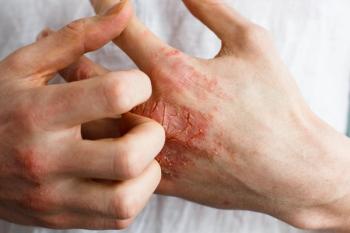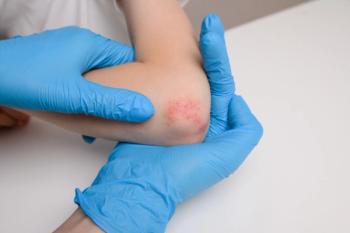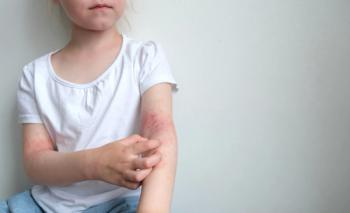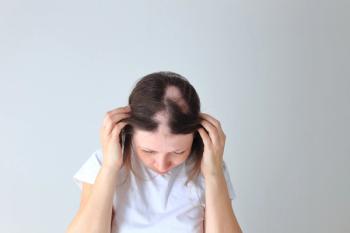
Upadacitinib Approved for Moderate to Severe Atopic Dermatitis
AbbVie announced the approval after 3 studies show the efficacy and safety of upadacitinib using mono- and combination therapy.
Biopharmaceutical company AbbVie recently announced the FDA approval of upadacitinib (Rinvoq) for the treatment of moderate to severe
For those aged 12 years and older weighing at least 40 kg (88 lbs), upadacitinib 15 mg can be initiated. Additionally, for adults less than 65 years old who do not achieve adequate response, the dose may be increased to 30 mg once daily, according to the press release announcing the approval.
"Early in my career as an allergist, I saw how relentless the itch and rash could be for my patients with moderate to severe [AD] yet had limited options to offer those whose disease could not be adequately controlled with systemic therapy," said Thomas Hudson, MD, senior vice president, research and development, chief scientific officer, AbbVie, in the press release. "This additional approval for RINVOQ provides a once-daily oral option that can significantly improve the debilitating itch and skin symptoms of [AD]. It's also a proud moment for AbbVie as we continue our efforts to improve care in this disease state and other chronic, immune-mediated conditions."
The FDA approval comes after safety and efficacy data from 3 studies (Measure Up 1, NCT03569293; Measure Up 2, NCT03607422; and AD Up, NCT03568318), which included more than 2,500 patients. The studies reported that approximately 52% of these patients had prior exposure to systemic AD treatment. Measure Up 1 and 2 evaluated the efficacy and safety of upadacitinib monotherapy, while AD Up evaluated combination therapy with topical corticosteroids.
Study treatment using upadacitinib 15 mg and 30 mg with or without topical corticosteroids met all primary and secondary end points at week 16, with some patients achieving higher levels of skin clearance, [Eczema Area and Severity Index (EASI 90) and 100].
For itch, all 3 studies showed improvement as early as week 1, compared to placebo (worst pruritus NRS greater than or equal to 4).
"Despite available therapies, many people with moderate to severe [AD] are caught in an endless cycle of itching and scratching," said Emma Guttman-Yassky, MD, PhD, Waldman professor and system chair of dermatology at the Icahn School of Medicine at Mount Sinai in New York, New York, in the release. "In clinical trials, upadacitinib showed a robust response across skin and itch symptoms that may help evolve treatment goals for those who have not achieved adequate control of their disease. And as an oral pill with 2 dose strengths, upadacitinib is a welcome addition to the toolbox of clinicians who are striving to make a significant difference for their patients with moderate to severe [AD]."
Reference
- U.S. FDA approves Rinvoq (upadacitinib) to treat adults and children 12 years and older with refractory, moderate to severe atopic dermatitis. AbbVie. Press Release. January 14, 2022. Accessed January 17, 2022.
https://news.abbvie.com/news/press-releases/us-fda-approves-rinvoq-upadacitinib-to-treat-adults-and-children-12-years-and-older-with-refractory-moderate-to-severe-atopic-dermatitis.htm?view_id=6943
Newsletter
Pharmacy practice is always changing. Stay ahead of the curve with the Drug Topics newsletter and get the latest drug information, industry trends, and patient care tips.























